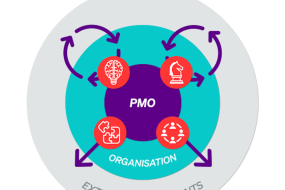
In the dynamic realm of the internet, where data flows freely across borders, the concept of digital sovereignty has emerged as a crucial aspect for nations to assert control over their online presence. Understanding the intricacies of country code top-level domains (ccTLDs) is pivotal in this digital age, where information is power.
Unveiling the Essence of Digital Sovereignty
Digital sovereignty goes beyond securing a country’s cyber borders; it encompasses the strategic management of online resources, data protection, and the cultivation of a digital ecosystem aligned with national interests. As nations grapple with cyber threats and data governance, the role of ccTLDs becomes a linchpin in fostering digital independence.
Decoding Country Code Top-Level Domains (ccTLDs)
The Foundation: What Are ccTLDs?
Country code top-level domains, abbreviated as ccTLDs, are two-letter domain extensions assigned to specific countries or territories. Examples include “.us” for the United States, “.uk” for the United Kingdom, and “.ca” for Canada. These extensions form the backbone of a nation’s online identity.
Significance of Country Domains
Country domains serve as a digital emblem, reflecting a nation’s online sovereignty. They play a vital role in establishing trust and credibility, both for local and international audiences. Managing and safeguarding these domains is a critical aspect of maintaining digital autonomy.
Navigating the ccTLD Landscape
A comprehensive list of ccTLDs is essential for understanding the diverse digital landscapes worldwide. Each ccTLD carries unique regulations, registration requirements, and governance structures. Familiarizing oneself with this intricate web is paramount for businesses and individuals operating in the global digital arena.
Strategies for Securing Digital Sovereignty
Enhancing Security Measures
Bolstering cybersecurity frameworks is a fundamental step in safeguarding digital sovereignty. Nations need robust measures to protect their ccTLDs from cyber threats, ensuring data integrity and mitigating risks associated with online activities.
Legal Frameworks and Governance
Crafting and enforcing effective legal frameworks for managing ccTLDs are crucial components of digital sovereignty. Nations must establish governance structures that balance the interests of stakeholders while upholding national cybersecurity and data protection standards.
The Intersection of Geopolitics and Digital Identity
Geopolitical Implications
The ownership and management of ccTLDs have become geopolitical considerations. In the ever-evolving landscape of international relations, control over digital identities can influence diplomatic ties and global perceptions.
Balancing Global Connectivity and National Control
Navigating the delicate balance between participating in the global digital community and retaining national control is a key challenge. Striking this balance ensures that nations harness the benefits of the internet while safeguarding their unique digital identities.
Future Trends in Digital Sovereignty
Evolving Landscape of Technology
As technology continues to advance, the landscape of digital sovereignty will undergo transformations. Artificial intelligence, blockchain, and other emerging technologies will shape how nations assert control over their online presence.
Collaboration and Diplomacy
International collaboration and diplomatic efforts will play an increasingly significant role in defining the parameters of digital sovereignty. Nations will need to engage in dialogue to establish norms and standards for responsible online behavior.
Final Words
In the intricate tapestry of the internet, where digital boundaries blur, the concept of digital sovereignty stands as a beacon for nations navigating the complexities of the online world. Securing control over country code top-level domains is not merely a technical endeavor but a strategic imperative for shaping the future of a nation’s digital identity.
Frequently Asked Questions
1. What is the role of a country code top-level domain (ccTLD) in digital sovereignty?
A: A ccTLD serves as a digital identifier for a specific country or territory, playing a crucial role in asserting online sovereignty and building trust in the digital realm.
2. How can nations enhance the security of their ccTLDs?
A: Nations can enhance ccTLD security by implementing robust cybersecurity measures, staying abreast of evolving threats, and fostering international cooperation on cybersecurity.
3. Why is the geopolitical aspect of ccTLD ownership important?
A: The geopolitical aspect of ccTLD ownership can influence diplomatic relations and global perceptions, making it a strategic consideration for nations in the digital age.
4. What are the future trends in digital sovereignty?
A: Future trends in digital sovereignty include the impact of emerging technologies like AI and blockchain, as well as the necessity for international collaboration and diplomatic efforts.
5. How can individuals and businesses navigate the diverse landscape of ccTLDs?
A: Navigating the diverse landscape of ccTLDs requires understanding their unique regulations and governance structures, emphasizing the importance of thorough research before domain registration.
Advertisement








